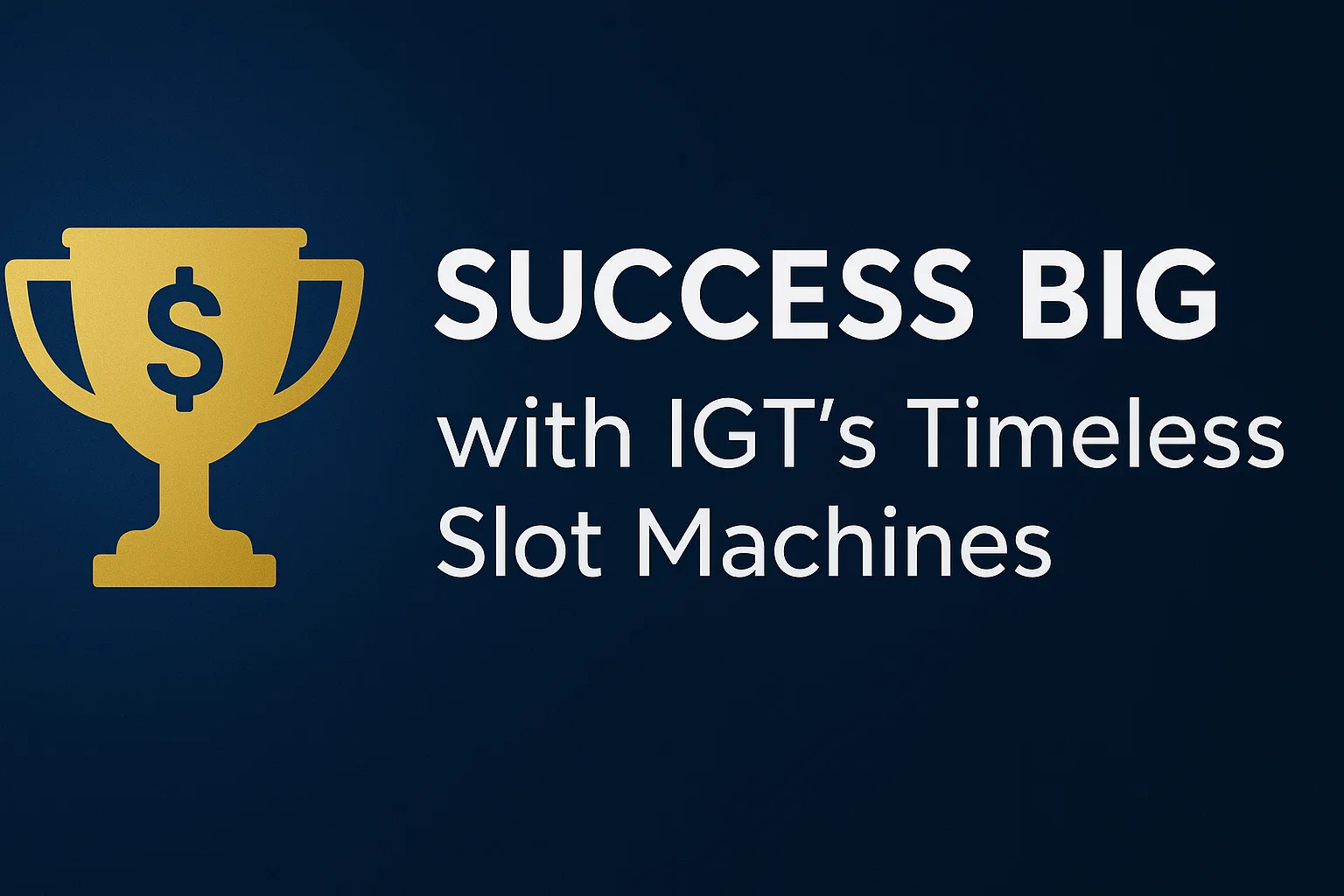Why IGT Mechanical Slots Remain Relevant
Igt slots online machines remain popular and lucrative despite the rising popularity of video slots. To win cash by playing hard games, you need to understand which machines offer the highest payouts. Although card games provide the highest winning percentage, most slot machines can also provide a high return on investment. These are money-making tips on how to choose the ideal machine for your favorite slot machines.
Tip #1 – Choose Lower Multipliers to Win Regularly
When you choose a machine with a lower multiplier than a machine that offers a 2X multiplier or no multiplier, such machines are less likely to pay a substantial amount. Research has revealed that wild machines with lower multipliers pay 30% higher than those with higher multipliers. Many times I have almost lost my hair because I could not win anything on a 5-X or better machine for $20. These machines offer the highest chance of winning. There are also less-rewarding, more-risky slots that offer larger chances of winning. On lower-multiplier machines, you will receive more money over a longer period of time and more often than on higher multipliers.
Tip #2 – Watch for Single Paylines for Larger Payouts
A new slots player might not understand the sense in betting just one line. It will seem like there will be more chances for good payout if you bet more lines. This is not true. The creators of slots have created more symbols to show on their reels by adding extra blanks. It becomes harder now to win big wins. You can be stunned at how different the payout is for winning three red 7s on a Double Diamond single-line and the same line win on a Five-Liner. The pay-out isn't equal. Single-line play will give more winners and a more frequent pay-out.
Tip #3 – Bet Coin Bets to Capacity Within Your Means
Bet as many as possible so that you have maximum chance of winning. This is an important aspect of mechanical slot play. It does not matter if you only have one coin to bet since you can bet on multiple coins and continue making more. We can only spend three coins since we play mechanical slots and not multiline video slot machines. As a result, players will see more wins and more line wins. This holds true even for progressive slots like Wheel of Fortune and Megabucks.
Old-School Slots Continue to Dominate
Some of these tips will guide you to the most rewarding machines and, perhaps, win higher rewards. Responsible gaming is responsible for delivering wonderful casino experience. Use your common sense to make better decisions. Do not fall into games with lower rewards.
All types of players love slot machines. There are money-making strategies that have been proven to succeed. You can beat them, wherever you play: online or in the casino.
The Timeless Attraction of Mechanical Reels
IGT's classic mechanical slot machines have built a devoted following in spite of the digital age. As video slots gain popularity, one would think the earlier versions would fall into the background. But they shine brightly, enticing individuals with the sirens' call of significant payouts. Why? Because game sense gets entangled with chance in these classic games.
The Nostalgia Factor Meets Smart Strategy
- Ah, the timeless siren song of slots! IGT's vintage games are bastions against a sea of digital competition.
- Their haptic pull-levers and spinning reels provide a nostalgic experience, a throwback to a forgotten time when strategy battled chance head-on.
- But let's lay to rest a myth: even here, strategic play can tilt the odds a bit more in your favor.
How, you ask? Let's have a look.
Tip #4 – Watch Before You Play
Patience isn't always just sitting idly by. Take a pause before jumping in headfirst. Observe. Study. Patterns may reveal themselves, and you'll have an advantage. Machines that have been quiet for some time may be building up a storm.
Tip #5 – Avoid Chasing Losses
The next spin, that's where luck turns around! Something everybody dreams about, but doesn't happen very often. Know when to keep your hands off. Maybe today isn't your day, but tomorrow? Who knows?
Tip #6 – Use Casino Loyalty Programs
Most casinos adore their regulars. So, if there is a loyalty program, take it! Over time, those complimentary plays or free drinks can add a nice touch to your casino visit.
Tip #7 – Set a Budget and Stick to It
Set your limits. As much as a thrill a repeat spin might give you, keep your feet planted on the ground. Keep in mind, the house has an advantage. By setting a limit, you ensure that you leave with your wits (and wallet) intact.
Tip #8 – Familiarize Yourself with the Rules of Each Machine
Sit down and read the rulebook. Each machine, though they might be from the same manufacturer, plays by different rules. Finding them out just might put odds on your side.
Tip #9 – Play for Enjoyment First
The clinking coins and excitement of a win are definitely exhilarating. But the real joy? It's in the game. Savor the experience, and the payoff is that much more gratifying.
Tip #10 – Know When to Walk Away a Winner
Fortune favors you? Great! But don't forget, the fortune winds are fickle. Invest some of your booty for a rainy day or get it working again, that today's enjoyment carries over to tomorrow.
Last Words: Luck, Logic, and Lever-Pulling Fun
Finally, slots new or old are all about balance between chance and strategy. Diversify with an open heart but with a watchful mind. After all, in the alluring world of casinos, at times the journey is as delightful as the destination. Just remember, play intelligently, stay safe, and let the reels turn!
